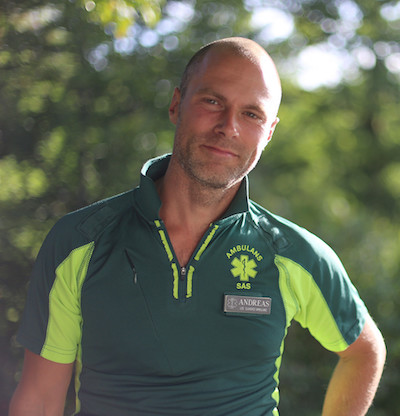Zambia
See the following -
'Virtual Doctors' Helping Patients in Zambia
The idea of a "virtual doctor" project might sound rather futuristic. But the inspiration for this scheme to improve health services in Zambia began in very low-tech and unhappy circumstances. Huw Jones, working in Zambia as a safari guide, was driving a Land Rover along a road in a remote part of the country. He saw a trail of blood in the road, and his first reaction was that it might have come from an animal killed by a lion. But he came across a couple on a bike - the man riding and the woman carried on the handlebars. She was pregnant and bleeding heavily and they had been cycling for hours with the aim of reaching the nearest hospital, almost 60 miles away...
- Login to post comments
Africa's Mineral Wealth Hardly Denting Poverty Levels, Says World Bank
Report finds discovery of oil and mineral resources doing little to improve prospects for poor people, whose lot may even worsen Read More »
- Login to post comments
Condom Airborne Meds: 6 Ways Drones Could Change Health Care
 Drones have been used to deliver sunscreen to a conference in Palm Springs, Calif., and pizza to a family in New Zealand, but they’re also in the air for far more urgent purposes — such as saving lives. In fact, in some cases, drones could carry defibrillators to heart attack victims faster than an ambulance, according to a paper published Tuesday in the Journal of the American Medical Association. Researchers simulated emergency situations and found they could get automatic external defibrillators to the scene an average of 16 minutes faster by drone than by ambulance...
Drones have been used to deliver sunscreen to a conference in Palm Springs, Calif., and pizza to a family in New Zealand, but they’re also in the air for far more urgent purposes — such as saving lives. In fact, in some cases, drones could carry defibrillators to heart attack victims faster than an ambulance, according to a paper published Tuesday in the Journal of the American Medical Association. Researchers simulated emergency situations and found they could get automatic external defibrillators to the scene an average of 16 minutes faster by drone than by ambulance...
- Login to post comments
Crowdsourcing Gaining Momentum in Africa
In Africa, we are also seeing some innovative ways in which crowdsourciing is being utilised. In Kenya for example, Ushahidi put Africa’s crowdsourcing on the map, as its platform was effectively used to monitor the 2002 Kenya elections...Closer to home in Kubanata, a Zimbabwean human rights and civic organization leveraged crowdsourcing to gather information to map the Typhoid cases in Zimbabwe, providing critical data to assist with managing the epidemic.
- Login to post comments
DHIS2 - Transforming Health IT Standards in the Developing World (Part 2)
 Rwanda's 2012 implementation of DHIS2 is one of at least 16 completed national rollouts of this free and open source health data management. A total of 54 countries are deploying DHIS2 on a national scale, 30 of which are in the pilot stage or early phase in their rollouts. Since DHIS2's release in 2006, NGOs and national governments in 60 countries have deployed DHIS2 for health-related projects, including patient health monitoring, improving disease surveillance and pinpointing outbreaks, and speeding up health data access.
Rwanda's 2012 implementation of DHIS2 is one of at least 16 completed national rollouts of this free and open source health data management. A total of 54 countries are deploying DHIS2 on a national scale, 30 of which are in the pilot stage or early phase in their rollouts. Since DHIS2's release in 2006, NGOs and national governments in 60 countries have deployed DHIS2 for health-related projects, including patient health monitoring, improving disease surveillance and pinpointing outbreaks, and speeding up health data access.
- Login to post comments
District Health Information System 2 (DHIS2)
 District Health Information Software 2 (DHIS2) is a free and open source health management data platform used by multiple organizations, including the European Union (EU), and governments worldwide. It is currently being deployed in 54 countries. DHIS2 is a development project by the Health Information Systems Program (HISP) and is used for aggregate statistical data collection, validation, analysis, management, and presentation...
District Health Information Software 2 (DHIS2) is a free and open source health management data platform used by multiple organizations, including the European Union (EU), and governments worldwide. It is currently being deployed in 54 countries. DHIS2 is a development project by the Health Information Systems Program (HISP) and is used for aggregate statistical data collection, validation, analysis, management, and presentation...
- Login to post comments
Ending Poverty: There's an Open Source App for That!
 Rural Africa presents changemakers with intractable challenges across sectors, but one American investor, Grameen Foundation, believes it all comes down to access to information. Grameen Foundation has invested millions to develop mobile-phone applications that leapfrog over a lack of electricity, education, and income. Building on their legacy of leading-edge ideas, Grameen Foundation has evolved from funding microfinance to designing disruptive solutions to the kind of poverty that's most challenging to reach, in remote rural areas, and to the poorest of the poor. Since more people have access to cell phones than toilets in Africa, Grameen Foundation brings increased agricultural productivity, access to prenatal and infant healthcare, and a portfolio of financial services, to the poor--right into the palm of their hands.
Rural Africa presents changemakers with intractable challenges across sectors, but one American investor, Grameen Foundation, believes it all comes down to access to information. Grameen Foundation has invested millions to develop mobile-phone applications that leapfrog over a lack of electricity, education, and income. Building on their legacy of leading-edge ideas, Grameen Foundation has evolved from funding microfinance to designing disruptive solutions to the kind of poverty that's most challenging to reach, in remote rural areas, and to the poorest of the poor. Since more people have access to cell phones than toilets in Africa, Grameen Foundation brings increased agricultural productivity, access to prenatal and infant healthcare, and a portfolio of financial services, to the poor--right into the palm of their hands.
Experimental Network Connects Zambia’s Most Remote
Range Networks, a leading U.S.provider of commercial open-source cellular systems, announced this week that it had successfully deployed an experimental cellular network in Southern Zambia. Read More »
- Login to post comments
Facebook-Backed Nonprofit Brings Free Internet To Zambia
...In an effort to help those left behind join the digital age, Internet.org—the Facebook-backed nonprofit organization—is releasing an app providing free internet data access to a handful of core services to people in Zambia. The freely available services are mostly focused on health, employment and local information. It’s a great step—if just a step—to getting the rest of the world online...
- Login to post comments
Hackathon to Focus on Open Source Biometric System for mHealth in Poor Countries
 A team from Redgate Software, the Cambridge UK based company behind the world’s leading SQL Server and .NET development tools, is devoting a week to work on the code for an open source biometric fingerprint system that will improve the lives of the poor in the developing world. The system is used by SimPrints, a non profit tech company working with the Gates Foundation and charities like Médecins Sans Frontières to design a low cost biometric scanner that can be deployed in the field. With the scanner, a health worker can swipe a patient’s fingerprint to find and view the correct health records on a mobile device, either online or offline.
A team from Redgate Software, the Cambridge UK based company behind the world’s leading SQL Server and .NET development tools, is devoting a week to work on the code for an open source biometric fingerprint system that will improve the lives of the poor in the developing world. The system is used by SimPrints, a non profit tech company working with the Gates Foundation and charities like Médecins Sans Frontières to design a low cost biometric scanner that can be deployed in the field. With the scanner, a health worker can swipe a patient’s fingerprint to find and view the correct health records on a mobile device, either online or offline.
- Login to post comments
Zambian Minister Says Open Source DHIS2 Is Vital for Healthcare
[Zambia's] Deputy Minister of Health Chitalu Chilufya says district health information systems are critical for surveillance and planning in the provision healthcare services. Dr Chilufya said the health sector in collaboration with co-operating partners commenced the implementation of a web-based health facility data base called district health information system (DHIS2). He was speaking in Livingstone on Wednesday during the DHIS2 academy training conducted by Oslo University.
- Login to post comments